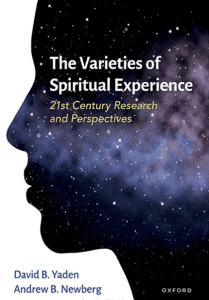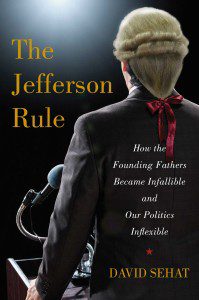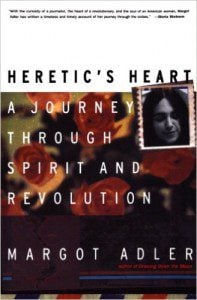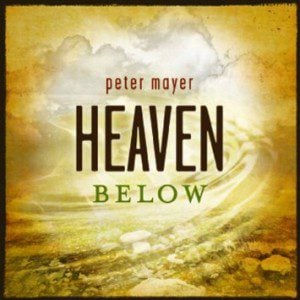The human heart is the first home of democracy. It is where we embrace our questions. Can we be equitable? Can we be generous? Can we listen with our whole beings, not just our minds, and offer our attention rather than our opinions? And do we have enough resolve in our hearts to act courageously, relentlessly, without giving up—ever—trusting our fellow citizens to join with us in our determined pursuit of a living democracy? The heart is the house of empathy whose door opens when we receive the pain of others. This is where bravery lives, where we find our mettle to give and receive, to love and be loved, to stand in the center of uncertainty with strength, not fear, understanding this is all there is. The heart is the path to wisdom because it dares to be vulnerable in the presence of power. Our power lies in our love of our homelands…. Democracy depends on engagement, a firsthand accounting of what one sees, what one feels, and what one thinks, followed by the artful practice of expressing the truth of our times through our own talents, gifts, and vocations. Question. Stand. Speak. Act.
—Terry Tempest Williams, “Engagement”
This post is the third in a series of Election-themed sermons. (The first post was on “Mitt Romney, Mormonism, and Book of Mormon: The Musical,” and the second on “Change We Can Believe In? The Obama Question.”) On the eve of Election Day, I want to reflect on the Fifth Principle of Unitarian Universalism, which explicitly promotes “the use of the democratic process within our congregations and in society at large.” In this country, there is arguably no greater use of the democratic process in society at large than our quadrennial election cycle that includes a vote for the office of President of the United States. The explicit emphasis on the democratic process in the Fifth UU Principle is likely tied to the emphasis in our First Principle on “The inherent worth and dignity of every person.” The word democracy comes from a combination of the Greek words for “people” and “power.” Democracy literally means “people power.” Today, “people power” likely brings to mind activists in the 1960s chanting “Power to the People” to protest that the richest segments of our society were increasingly undermining our democracy. More recently, the pro-democracy Occupy movement has similarly been protesting our wealth gap, which has only continued to grow. And the 2010 Supreme Court ruling Citizens United v. Federal Election Commission, which held that the First Amendment prohibits restrictions on independent political expenditures by corporations, has only exacerbated the influence of the ultra-rich on our elections, further undermining the voice of poor and middle class individuals in our democracy. To follow the money in recent months, USA Today reports that, “Total spending on the presidential and congressional races this year is on pace to reach a record $6 billion.” There are also many disturbing threats to our democracy in false cries of “Voter Fraud,” which seem to many observers to be covert attempts at voter suppression. These anti-democratic trends toward oligarchy (“rule by a few”) or plutocracy (“rule by the wealthy”) trouble many supporters of the democratic process. And these days we typically do have positive associations with the word democracy, and want to reclaim an authentic democracy of empowered, engaged individuals. But it is important to note that in the history of political philosophy, democracy has often been heard in a pejorative sense. The same Greek root demos, which in the word democracy contributes to the meaning “people power,” becomes in the word demagoguery, a leader who manipulates and exploits the prejudices and emotions of the common people for political gain. “Power to the people” can be a dangerous notion if the people are an uneducated, unruly mob. Indeed, many founders of this country feared that direct democracy would result in the “tyranny of the majority,” oppressing the rights of individuals or overriding the best interests of the society as a whole. One of the most famous examples is The Federalist Papers, No. 10, in which James Madison argued that the United States should not be a “pure democracy…a society consisting of a small number of citizens, who assemble and administer the government in person…” but should instead be “A republic…a government in which the scheme of representation takes place.” Despite the enthusiasm in the Unitarian Universalist principles for “the use of the democratic process…in society at large,” our country is a representative democracy, not a direct democracy. As a result, it is quite possible in our country for a presidential candidate to win the popular vote (the most visible result of the democratic process), but lose the election. The existence of the Electoral College makes such a scenario possible, and it is another safe guard our founders set in place against the dangers of democracy devolving into demagoguery. As recently as 12 years ago, Al Gore won more popular votes than George W. Bush, but lost in the Electoral College, makingthe 2000 election the fourth time in U.S. history in which the person elected president did not win the popular vote (the other three times being 1824, 1876, and 1888). There is even speculation that a similar dynamic could play out this year, but we’ll have to wait until probably at least early Wednesday morning to know for sure. As seen in the opening quote, Terry Tempest Williams raises the question, “do we have enough resolve in our hearts to act courageously, relentlessly, without giving up — ever — trusting our fellow citizens to join with us in our determined pursuit of a living democracy?” And irrespective of what happens on Tuesday, all those who have made phone calls, sent emails, and engaged in simple humane conversations about these vital issues have helped embody a positive response to Williams’ challenge to engage the democratic process. Speaking for myself, as someone who has spent most of his life in the “Red States” of South Carolina, Texas, and Louisiana, I’m grateful to for the opportunity to live in a state in which it is even conceivable that a majority of the population might vote for Marriage Equality. There is, at the same time, much to be said for the vital importance of open-minded people who live in Red States and have the courage to stay, speak out, and work for change. But the whole “Blue State” vs. “Red State” division, as well as the increasingly petty, vitriolic and uncivil state of our political discourse, raises important concern about the future of our democratic process. And in the midst of our electoral squabbles, one book that has received significant media attention for bringing some much needed clarity into the underlying dynamics of our divided political landscape is The Righteous Mind: Why Good People Are Divided by Politics and Religion by Jonathan Haidt, a professor at NYU’s School of Business. Weighing in at a little more than 300 pages without counting the backmatter, Haidt’s book is not a short read, but the print is relatively large. And unlike some books that are an elaboration on one major point, Haidt’s The Righteous Mind is a layered tapestry of social scientific studies, historical context, and philosophic background.
Before continuing, please view this chart from his book. This line graph illustrates the scores on the “Moral Foundations Questionnaire” from 132,000 subjects, collected from the website YourMorals.org, where you can take the questionnaire if you would like and contribute to this ongoing research. Other emerging moral foundations that Haidt and other social scientists are tentatively exploring include Liberty/Oppression, Honesty, Property/Ownership, and Water/Inefficiency (347, fn 25). For now, this particular chart, although obviously only one of many possible typologies, is based on relatively solid data, and is one way of both articulating our current political divisions as well as gesturing toward how that divide begin to be bridged. To perhaps state the obvious, this chart shows that people who identify as “Very Liberal” tend to focus passionately on “Care” and “Fairness” as foundations for making moral judgements, almost to the exclusion of Loyalty, Authority, and Sanctity. And it is not the case, as liberals sometimes claim, that conservatives do not care about “Care” and “Fairness.” Rather, people who are “Very Conservative,” care almost equally about all five moral foundations — although, when pressed, Authority, Sanctity, and Loyalty tend to trump Care and Fairness. To take the to our earlier example of ballot initiatives on Marriage Equality, ideological battles have been playing out around office water coolers and in letters to the editor across this country about the virtues and vices of same-sex marriage. Liberals tend to mount arguments about fairness (If some opposite-sex loving adults are free to marry the person they love, then it is only fair to allow same-sex loving adults to marry the person they love) and arguments about care (allowing same-sex marriage is the kind and compassionate choice). The Unitarian Universalist slogan “Standing on the Side of Love” is a consummate example of liberals emphasizing the moral foundation of “Care.” In contrast, conservatives tend to argue against homosexuality with appeals to authority (such as references to so-called “Biblical Marriage”) or sanctity (arguing that same-sex relationships are “disgusting”). A classic liberal retort would be to point out that most claims about the Bible supporting monogamy cavalierly ignore the rampant polygamy in the Bible. But Haidt’s chart show that attempts from liberals to debunk conservative arguments by undermining the authority of the Bible — or by pointing our that emotions like disgust are, for the most part, only socially-constructs dependent on cultural context — usually only trigger that third conservative value of “Loyalty” — causing a further entrenchment into the person’s current beliefs. Here potentially is one of the major takeaways of Haidt’s book for our democratic process. We will likely remain deeply divided as a nation if we just keep “preaching to the choir.” If liberals only talk in terms of “Care” and “Fairness,” then most conservatives are never going to be persuaded to change their position. And it doesn’t count if liberals only talk about authority, sanctity, and loyalty in negative terms — to demythologize The Book of Mormon or to criticize the Vatican. To maximize the chances of persuading conservatives to support issues such as Marriage Equality, liberals need to learn to speak about morality in a way that conservatives can hear. According to Haidt’s chart that would mean front-loading arguments that appeal to Authority, Sanctity, and Loyalty. That is why books such as Daniel Helminiak’s What the Bible Really Says About Homosexuality are so important. Similarly, it is no mistake that when the conservative pundit Andrew Sullivan — who happens to be gay — wrote a book about legitimizing homosexuality he titled it Virtually Normal. Sullivan cares both about advancing same-sex rights and about conservative politics, and being familiar with both worldviews, he strategically seeks to promote LGBT rights with the argument that many same-sex couples are “virtually normal” — they are essentially just like your average, everyday American with the minor exception of what happens behind closed bedroom doors. Besides the moral foundations chart, another central insight in Haidt’s book is that when we make moral judgements, “Intuitions come first, strategic reasoning comes second.” As a social scientist, Haidt is not principally trying to prescribe how he thinks humans should make moral judgement. Instead, he is to describe what he sees when he conducts study after study of actual human beings making moral decisions. And what he has found is that most moral judgements are made less like a scientist carefully weighing all the available data and more like a lawyer or a press secretary that offers argument after argument in defense of a previously determined position (76, 78). Studies show that we often make moral decisions based on our immediate emotional reaction, then we use reasoning to legitimize our initial intuitive response (61). A few weeks ago, in the first in this series of sermons on “Election 2012,” I gave the example that far too many debates between liberals and conservatives quickly become predictable, repetitive, and tiresome. I sometimes think of it as similar to each party beating their head against a brick wall: the wall of respective predetermined opinions escapes unscathed, but each person’s head starts to hurt a lot. Haidt’s work invites us to notice when this frustrating pattern is happening. When you have find yourself debating with someone with significantly different moral foundations than you, notice when your interlocutor is acting more like a lawyer or a press secretary than a scientist. Notice if, each time you point our an inconsistency of myth, the person quickly searches for a new supporting reason or even says something like, “I know there is a good reason for what I believe, but I just can’t think of one right now.” The challenge is also to notice when you are acting more like a lawyer or press secretary for your beliefs — always on the offense or defense and never questioning taking the alternative positions seriously on their own terms. Haidt’s book points to personal relationships as one potential way out of this dilemma (48). Relationships, in particular, play into the importance that conservatives place on loyalty. That’s why, for example, you see even “Very Conservative” politicians such as Dick Cheney supporting same-sex marriage rights when his daughter Mary came out of the closet as a lesbian and gave birth to two of his grandchildren. Building personal relationships with people you disagree with strongly may seem like a lot of work, but whoever said changing the world was easy! Admittedly, the primary case study we have been exploring about Marriage Equality has principally been from the perspective of helping liberals communicate more persuasively to conservatives. But Haidt’s book provides many other examples in both directions if you are interested. And I certainly do not mean to imply that everyone should become a liberal. As even that classic liberal John Stuart Mill said, “A party of order or stability, and a party of progress or reform, are both necessary elements of a healthy state of political life.” There has also only been time this morning to touch the surface of all the implications of Haidt’s work, but I hope that I have perhaps given you a few new frameworks for engaging the democratic process. As Terry Tempest Williams’ said in the spoken meditation, “Democracy depends on engagement, a firsthand accounting of what one sees, what one feels, and what one thinks, followed by the artful practice of expressing the truth of our times through our own talents, gifts, and vocations.” What are your unique talents, gifts, and vocations? Who do you know, and what are your spheres of influence? How are you are uniquely able engage the democratic process? Where are you uniquely able to “Question. Stand. Speak. Act.”?
 Content Director’s Note: This post is a part of our Election Month at Patheos feature. Patheos was designed to present the world’s most compelling conversations on life’s most important questions. Please join the Facebook following for our new News and Politics Channel — and check back throughout the month for more commentary on Election 2012. Please use hashtag #PatheosElection on Twitter.
Content Director’s Note: This post is a part of our Election Month at Patheos feature. Patheos was designed to present the world’s most compelling conversations on life’s most important questions. Please join the Facebook following for our new News and Politics Channel — and check back throughout the month for more commentary on Election 2012. Please use hashtag #PatheosElection on Twitter.
Notes
1 Terry Tempest Williams, “Engagement,” Orion (July-Aug 2004), available online at http://www.orionmagazine.org/index.php/articles/article/143/. Also see her similarly themed 2004 book The Open Space of Democracy. Terry Tempest Williams is an American author, conservationist, and environmental activist. She’s also Mitt Romney’s cousin once removed (her grandmother and Governor Romney’s father were cousins). 2 “Income inequality has soared to the highest levels since the Great Depression and the recession has done little to reverse the trend, with the top 1 percent of earners taking 93 percent of the income gains in the first full year of the recovery.” For more, see http://topics.nytimes.com/top/reference/timestopics/subjects/i/income/income_inequality/index.html. 3 “2012 election costs could reach record $5.8 billion,” USA Today, available at http://content.usatoday.com/communities/onpolitics/post/2012/08/2012-election-total-spending-costliest-obama-romney-/1#.UJNRBWl25-E. For the $6 billion figure, see the updated data from the source quoted in the original article in “2012 Election Spending Will Reach $6 Billion, Center for Responsive Politics Predicts,” available at https://www.opensecrets.org/news/2012/10/2012-election-spending-will-reach-6.html. 4 For one of many articles on “Voter Fraud” claims as voter suppression, see “Upholding Democracy, Ballot by Ballot,” The New York Times (November 3, 2012), available at http://www.nytimes.com/2012/11/04/opinion/sunday/voting-rights-upholding-democracy.html?ref=opinion&_r=0. 5 On the popular vote and the Electoral College, see http://topics.nytimes.com/topics/reference/timestopics/subjects/e/electoral_college/index.html. Specifically on the 2012 election, see “Oct. 30: What State Polls Suggest About the National Popular Vote,” available at http://fivethirtyeight.blogs.nytimes.com/2012/10/31/oct-30-what-state-polls-suggest-about-the-national-popular-vote/. 6 For a typology that incorporates libertarianism, see http://www.politicalcompass.org/. 7 For an excellent anthology of LGBT stories, see Crisis: 40 Stories Revealing the Personal, Social, and Religious Pain and Trauma of Growing Up Gay in America, edited by Mitchell Gold. 8 “Cheney backs gay marriage, calls it a state issue,” http://www.msnbc.msn.com/id/31066626/ns/politics/t/cheney-backs-gay-marriage-calls-it-state-issue/. 9 John Stuart Mill, On Liberty(2003/1859), 113.
The Rev. Dr. Carl Gregg is a trained spiritual director, a D.Min. graduate of San Francisco Theological Seminary, and the minister of the Unitarian Universalist Congregation of Frederick, Maryland. Follow him on Facebook (facebook.com/carlgregg) and Twitter (@carlgregg).
Learn more about Unitarian Universalism: http://www.uua.org/beliefs/principles/index.shtml
















